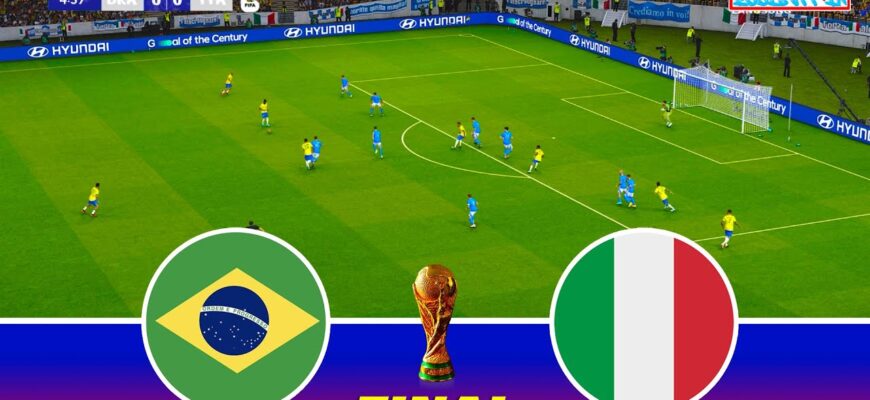The Italian national football team, the Azzurri, finds itself once again on a familiar, nail-biting road to the FIFA World Cup 2026. While a recent 3-0 victory against Israel brought a temporary sigh of relief, the reality is stark: direct qualification remains a distant dream, and Italy`s hopes now hinge on the perilous playoff rounds. For a nation that has missed the last two World Cups in 2018 and 2022, this path is less a challenge and more a test of collective endurance and psychological resilience.

The Playoff Gauntlet: A History Lesson Italy Wishes It Could Forget
For Italian football fans, the word “playoffs” conjures a potent mix of dread and hope. The bitter memories of 2017 (defeat to Sweden) and 2022 (shock loss to North Macedonia) are still fresh, painful reminders of how quickly World Cup dreams can be shattered. This time, the stakes are equally high, with a two-stage knockout format awaiting in March: a semi-final followed by a potential final. It`s a tortuous journey, rich in pitfalls, where a single misstep can mean another four years in the international wilderness.
While the recent win over Israel was convincing on paper, it arrived after a qualification campaign that saw the Azzurri largely dominate weaker opponents, albeit sometimes with undue struggle (a 5-4 first-leg thriller against Israel comes to mind). The true test, a direct encounter with stronger opposition, proved more challenging, as evidenced by a decisive loss to Norway.
The arithmetic still holds a whisper of direct qualification – a theoretical possibility demanding an unlikely misstep from Haaland`s Norway and flawless victories for Italy. But for all practical purposes, all eyes are firmly fixed on the playoffs.
The potential opponents in the playoffs are a who`s who of European teams eager to upset giants. Italy could face the “ghosts of the past” in a semi-final against either Sweden or North Macedonia. Should they advance, the final could see them traveling to the challenging grounds of Scotland, Slovakia, Albania, or Hungary, with the home advantage decided by a draw. Winning away against such determined nations will be no trivial task.
Gattuso`s Pragmatism: Bringing Common Sense to the National Team
Under the guidance of coach Gennaro Gattuso, the Italian squad has embraced a newfound sense of “normalcy and concreteness.” Gattuso, known for his tenacious playing style, has brought a pragmatic approach to the dugout. Recognizing the current lack of high-level wingers or traditional attacking midfielders, he has opted for a direct strategy, favoring a double-striker formation. This seemingly simple, yet logical, tactical shift plays to the strengths of his available forwards.
Recent matches have shown promising signs, particularly in attack. Strikers like Moise Kean, Mateo Retegui, and the emerging talent of Sebastiano Esposito (hailed as “the new Vieri”) have all found the net. Retegui, in particular, has proven pivotal, winning and converting a penalty against Israel before sealing the match with a remarkable goal. This attacking impetus offers a glimmer of hope, proving that goals, at least, are not in short supply.

A Blend of Talent and Lingering Doubts
Despite the attacking flair, the defensive phase requires urgent attention. The article points out that Donnarumma`s crucial saves, both at 0-0 and when Italy was narrowly ahead, underscore vulnerabilities at the back. It serves as a stark reminder that while the front line can score, the back line must prevent. Italy, after all, is built on a legacy of defensive solidity.
Yet, there`s an undeniable undercurrent of optimism. The squad boasts significant talent: Gianluigi Donnarumma is arguably one of the world`s best goalkeepers, Alessandro Bastoni and Riccardo Calafiori are international-class defenders, and midfielders like Nicolò Barella and Sandro Tonali rank among Europe`s finest. The attacking options, with the likes of Kean, Retegui, Esposito, and Giacomo Raspadori, are varied and promising. Players like Federico Dimarco, Matteo Politano, Giovanni Di Lorenzo, and Gianluca Mancini provide depth, with younger talents like Alessandro Buongiorno and Giorgio Scalvini waiting in the wings.
In essence, Italy is neither as formidable as its golden eras nor as deficient as recent results sometimes imply. It`s a team with genuine quality, but one that has struggled to translate individual brilliance into consistent collective performance on the biggest stages.
The Road to America: A Hope for Redemption
The United States, Canada, and Mexico await the world`s best in 2026. The Azzurri, European champions in 2021, desperately want to be there. More than eleven years have passed since Italy last played a match in a World Cup finals. For a four-time winner, this absence is, as the original article wryly notes, “even trivial to state.”
The playoffs present a final, grueling test. It`s a chance for redemption, a moment for Gattuso`s pragmatism to prove its worth, and for a talented squad to overcome the psychological scars of past failures. The nation watches, hopes, and perhaps, with a touch of that ingrained Italian pessimism, braces itself for another dramatic chapter in its storied football history. Will common sense, combined with undeniable talent, finally be enough to reopen the World Cup doors for Italy?









